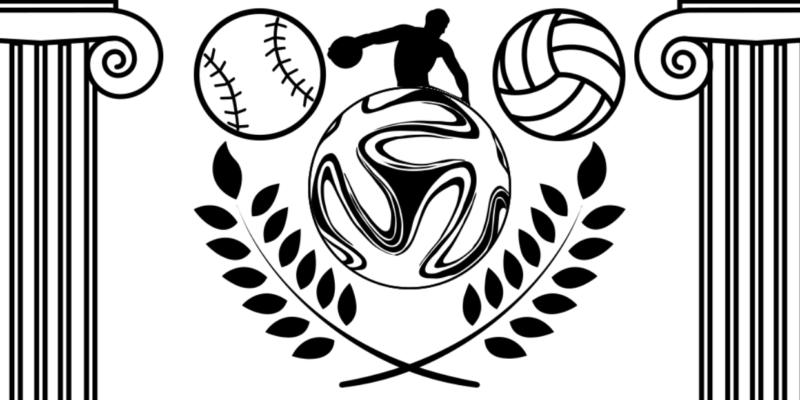Approximately one in four Trinity students is involved in Greek life, while on average, one in every five students plays on a varsity athletic team. Inevitably, there is quite a bit of overlap between athletics and Greek life.
“We have athletes [in Greek life] that represent most of the teams,” said Jeremy Allen, coordinator for fraternity and sorority life.
Among athletes involved in Greek life, participation in their organization is often seen as having a positive impact on their personal and athletic lives, especially with regards to leadership, as former president of Phi Sigma Chi and varsity swimmer Jake Spitz speaks to.
“From a leadership perspective, it doesn’t take a great deal of effort for a captain [of a sport’s team] to motivate his team, but in Greek life you’re dealing with a myriad of personalities who all have different reasons for being involved,” Spitz said.
An athlete’s presence in a Greek organization can also bring about higher game attendance, said Janie Thompson, senior goalkeeper for the women’s soccer team and president of SPURS sorority.
“I get to get our game schedule out there,” said Thompson. “Being a part of Greek life and soccer is a good way to bring the community together even more and support each other.”
Some coaches, however, have expressed doubts about the positives of Greek life among athletes, especially during the first year. Sean Ethridge, head men’s golf coach, has discouraged his players from going Greek until their sophomore year.
“This is the first year that I have strongly discouraged participating in Greek life activities for first-year students only,” Ethridge said. “I felt the need to give them the necessary time to adjust to the academic rigors of Trinity, as well as the practice and travel schedules of being a nationally competitive golf program.”
While Ethridge acknowledges that Greek life has its benefits, it also takes up a lot of a student’s time, particularly during new member orientation. The drawbacks of this can manifest themselves at inopportune times.
“I think if you’re a student athlete struggling to managing time and priorities, this is where it can catch up to you. The demand on your time, and mostly your evenings, are what can cause the largest issues I’ve seen,” Ethridge said.”You have a recipe for stress, low academic achievement, and less than ideal performance.”
Additionally, there are the needs of the classroom. Aspiring Greeks who do not play a sport only need to have a GPA of 2.30. Those who do play a sport must have a GPA of 2.60. Added time commitments, plus a higher standard, can be daunting. However, Thompson has found the combinations of commitments to be positive, as they have learned valuable time-management skills.
“I’ve definitely learned to manage my time as best as I possibly can,” Thompson said.
An argument can be made for the advantages of waiting to go Greek until one’s sophomore year, as first-year athletes are still adjusting to life not only as a college student, but as a collegiate athlete as well.
“I feel that by discouraging participation, student athletes will actually feel less pressure to jump into something that they might want to consider the time demands of a bit further,” Etheridge said.
For some students, even those not involved in athletics, Greek life is too much to handle right out of the gate their first year.
“About a quarter of the students that have signed up for our master recruitment list are sophomores or juniors, mostly sophomores,” Allen said, “For certain students I think that’s definitely helpful so if certain teams have that mentality, we’re willing to recognize the importance of that. So I think there are definitely sufficient reasons to make that argument.”
Ultimately, the opportunity to engage in two different arenas of college life provides a good learning environment for maturing students on the cusp of adulthood, and the real world.
“The leadership opportunities in Greek life are unparalleled, but they cannot come close to what athletics can teach someone about personal drive and how to struggle for success. I think when the two of them are combines, they develop a young person into an extraordinary adult,” Spitz said.
It remains an issue that Greek life and athletes have shared for years, and does not appear to be going anywhere anytime soon.





